
Perennial Forbs Around Las Vegas, Vegetation Around Las Vegas
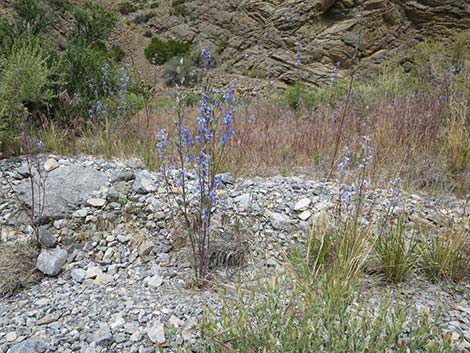 |
General: Desert Larkspur (Delphinium parishii ssp. parishii) is a perennial forb with unusual and complex flowers borne on a single, 3-foot-tall stalk. The dark blue flowers have the appearance of an open corolla tube with long, reflexed (bent backwards) petals and an even longer spur sticking out the back of the flower. Desert Larkspur is an uncommon component of desert and montane vegetation communities, although the bloom can be locally abundant in some years and some places. Desert Larkspur can be found in sandy and gravelly soils on flats, in and along washes, and on bajadas into the lower mountains in the Lower Sonora (Creosote-Bursage Flats), Upper Sonoran (Mojave Desert Scrub), and Transition (Yellow Pine Forests) life zones. Some of the best "stands" of Desert Larkspur are in Lake Mead National Recreation Area along Northshore Road east of Callville Bay. Family: Buttercup (Ranunculaceae). Other Names: Parish's Larkspur. |
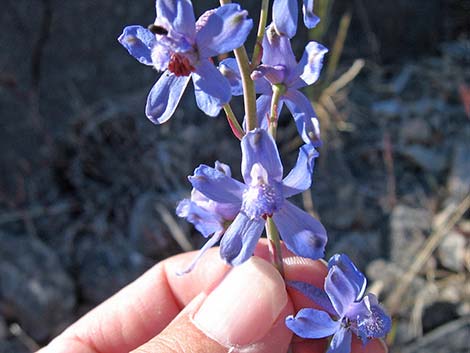 |
Plant Form: Perennial forb from a taproot; tall flower stalk. Height: To about 3-feet tall. Stems: Single, unbranched, upright. Leaves: Basal, but mostly on the stem when in flower. Leaf blades palmately lobed. Basal leaves with 3 to 5 lobes; cauline leaves (leaves on the stem) have 3 to 15 lobes. Flowers: Blooms mid to late spring. Inflorescence: stalk with up to 75 flowers; pedicels to about 2 inches. Flowers: dark blue with the appearance of an open corolla tube with long, reflexed (bent backwards) petals and an even longer spur sticking out the back of the flower. The spur is formed from the uppermost "petal," which is actually a sepal. |
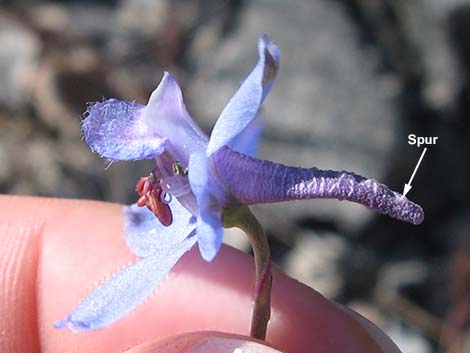 |
Seeds: Habitat: Dry, well-drained sandy, gravelly, and rocky soils on flats, in and along washes, on bajadas, and on moderate slopes in the lower mountains. Elevation: About 1,000 to 8,000 feet. Distribution: California to southwestern Utah and Arizona, and south into Baja California. Comments: |
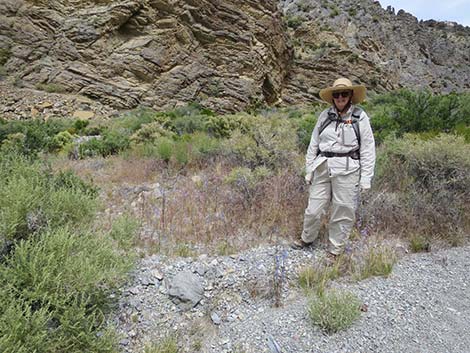 |
 |
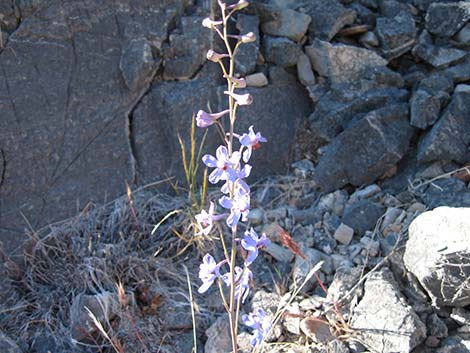 |
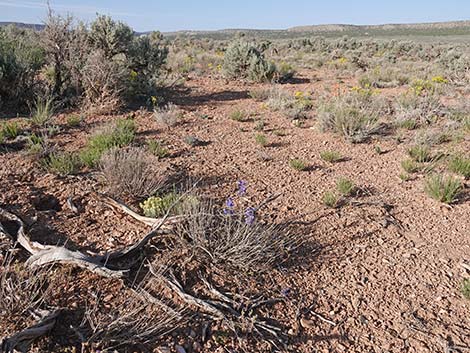 |
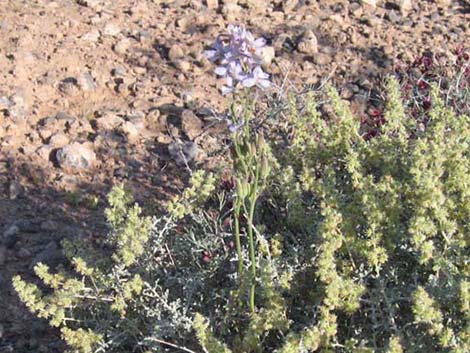 |
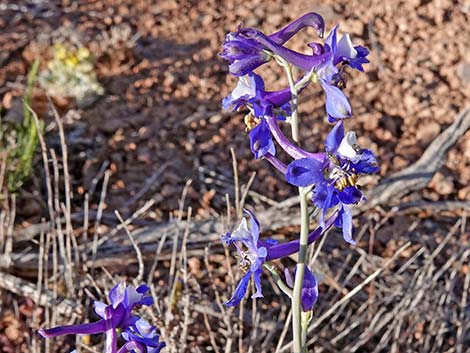 |
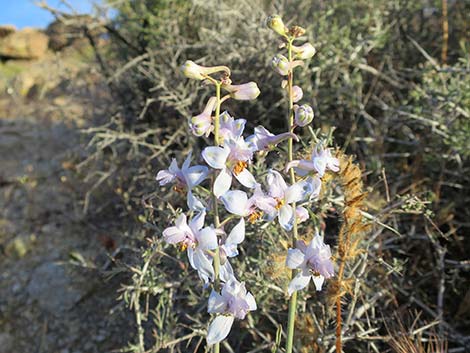 |
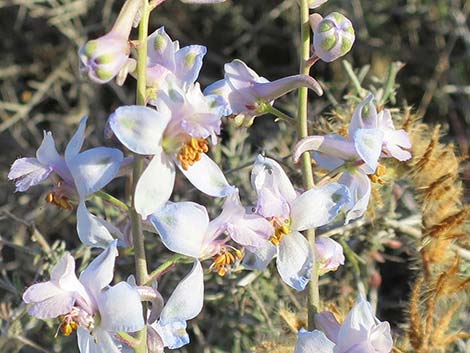 |
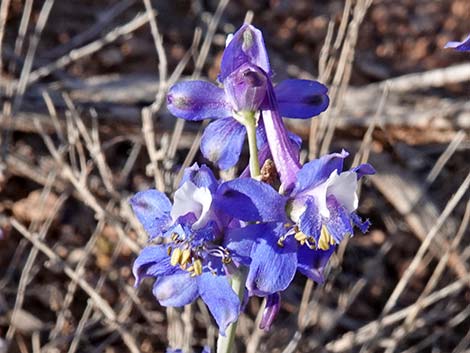 |
 |
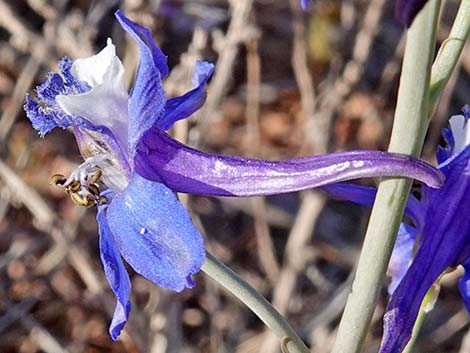 |
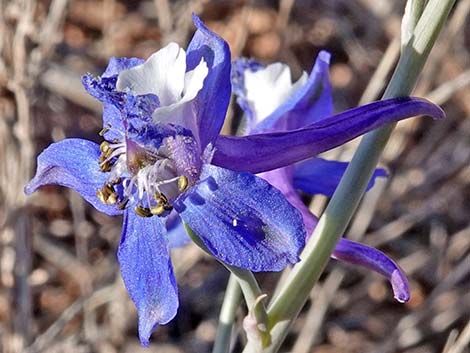 |
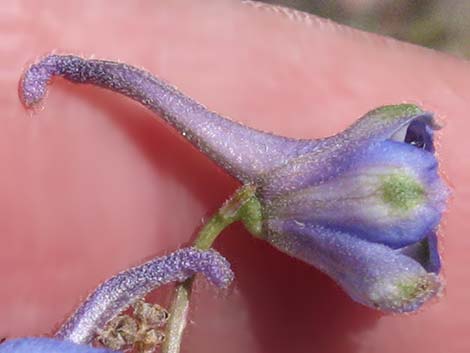 |
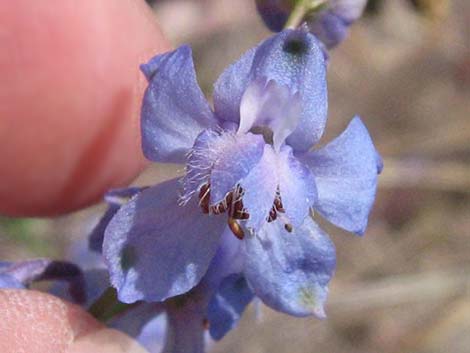 |
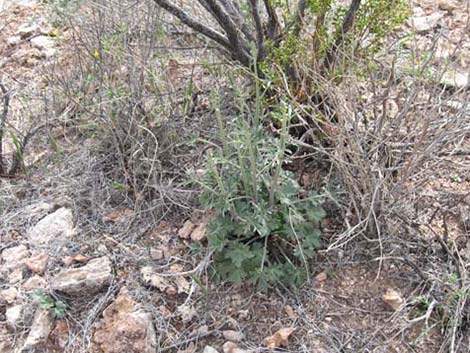 |
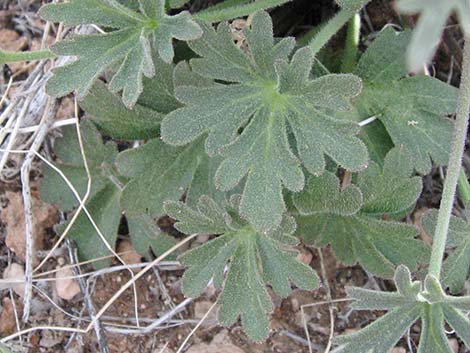 |
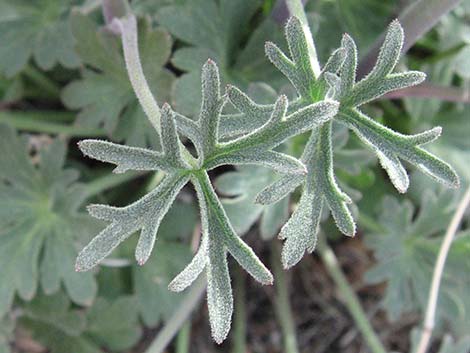 |
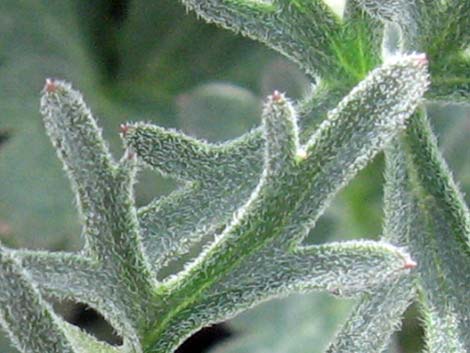 |
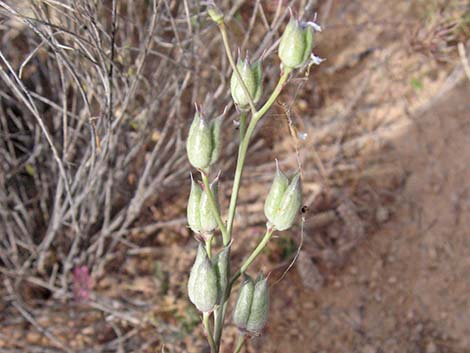 |
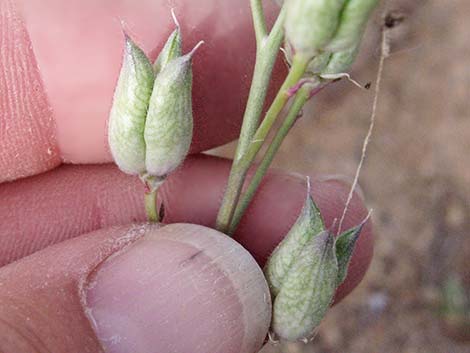 |
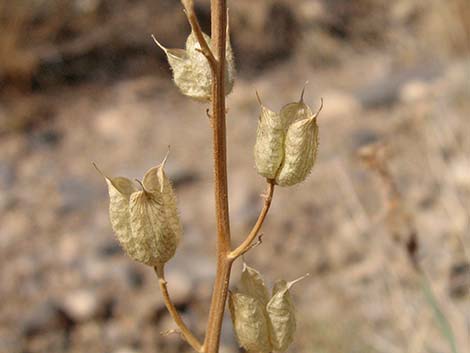 |
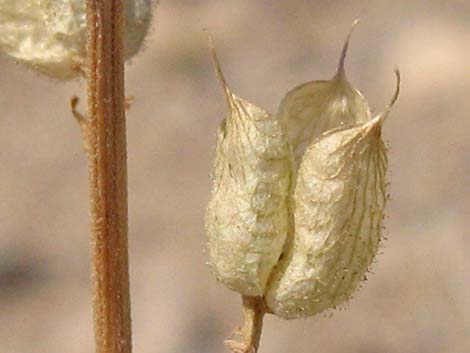 |
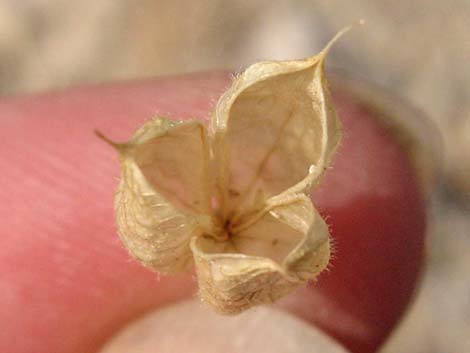 |
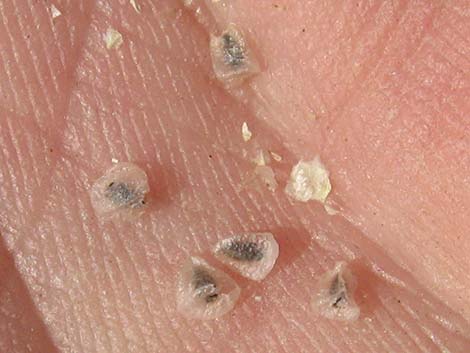 |
Note: All distances, elevations, and other facts are approximate. Names generally follow the USDA database.
![]() ; Last updated 220813
; Last updated 220813
| All Perennial Forbs | Plant Species Index | Glossary | Copyright, Conditions, Disclaimer | Home |